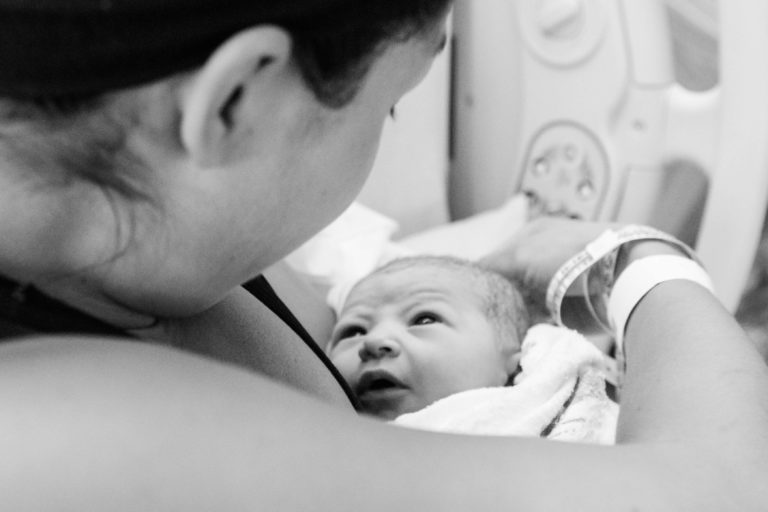“My birth plan is to have a baby!”
If only I had a dollar for every time I’ve heard that one. You should definitely bring that laid back attitude into your birth space, but creating a birth plan still might be a good idea.
Here’s the truth: birth plans are a tool that every pregnant woman can use. They’re not just for moms who are planning an unmedicated childbirth.
Before you decide if you want to create a birth plan, it’s important to understand a few things: First of all, what is a birth plan? What purpose does it serve? How do I know if I need one?
You have questions. I have answers. Let’s dive in.
What is a birth plan?
A birth plan is a written plan that outlines a pregnant woman’s preferences and wishes during the labor and birth of her child. Birth plans are generally created in the 3rd trimester and reviewed with a woman’s birth provider before the beginning of labor.
It’s also worth noting what a birth plan is not. A birth plan is not a guarantee that your birth will unfold as “planned”. In fact, it’s more accurate to call them birth preferences, because there are many elements of your birth that you can’t plan.
What is the purpose of a birth plan?
Wait. If you’re saying that I essentially have no control over my birth, what’s the point? I have a simple analogy that might clear things up: You are taking a road trip, and you want to find the most direct route possible to your destination. It’s very likely that you’d take the time to map the route on your GPS and consider factors like traffic, road work and time of day when you plan your trip. You might even plan your pit-stops and make sure you are at a stopping point around meal times. What you probably wouldn’t do is jump in the car and hope that you see road signs that tell you what to do. Would you get there eventually? Sure. But it wouldn’t be a pleasant trip – unless you’re a lunatic who enjoys asking for directions at seedy gas stations.
Here are three ways a birth plan can help you as you prepare for the big day:
Find Clarity
Creating a birth plan allows you to find clarity in deciding what your ideal birth might look like and exploring what elements will make a specific outcome the most likely. In many ways, the potential of a birth plan is not handing it to your provider. The magic is in the process of creating the plan. Exploring your options and educating yourself on the pros and cons of each element of birth. Creating a plan over the course of your pregnancy is one of the best ways to self-educate yourself about your options.
Facilitate Discussions
Another critical purpose for a birth plan is to help facilitate a discussion with your provider about your birth preferences and to identify any potential discrepancies between what you want and what is offered by your provider or hospital. For example, you may specify that you would like to maintain freedom of movement during labor and may want to utilize the shower for pain management. If your hospital policy is to maintain continuous fetal monitoring, this desire may not be possible at your particular facility. This is critical information and will clue you in that your provider might not be a good fit.
Manage Expectations
After discussing your birth plan with your provider, you will have the information you need to help you manage your expectations as you mentally and physically prepare for labor. Your provider will also be able to tell you specifically why some aspects of your plan are not possible. If you have a unique medical history or any pregnancy complications, parts of your plan might need to be revised.
Do I really need one?
The creation of a birth plan is just one of many birth decisions that are 100% discretionary. Unfortunately, there is a stigma that surrounds birth plans, and many doctors and nurses can be dismissive or unsupportive of them. Women feel uncomfortable presenting a birth plan because they fear being labeled a “diva” or a “momzilla”.
Don’t make your decision not to create a birth plan from a place of fear. You might worry about jinxing your birth, or of a providers reaction to your plan. Those are all fear-based reactions. Is there a legitimate reason that you don’t need or want a birth plan? Flesh out the real reason for your hesitation and be sure that you are deciding for YOU, and no one else.
When you are making your decision, here’s another factor to consider: laboring women are often not able to articulate or communicate their desires. Bringing a baby into the world takes every ounce of attention and focus. Even if you don’t give your birth plan to your provider, it can be an excellent reference for your partner or doula. In many cases, it’s the person carrying the baby who does the bulk of the research and has strong feelings about how she wants to birth. It can be a relief for partners to have a “cheat sheet” of the plan you’ve created so that they can help advocate for you if needed.
Key Takeaways
Whether you ultimately decide to create a birth plan or not – here is the takeaway: The more information you have, the better choices you can make. We know that all providers and hospitals are not created equally, so it’s critical to take charge of your birth. That might mean creating a birth plan, or just being sure that your support people have a crystal clear understanding of how to best advocate for the birth you want. Even if your birth doesn’t ultimately go as “planned”, you can accept and process any outcome knowing that you waddled into your labor as prepared as possible.



